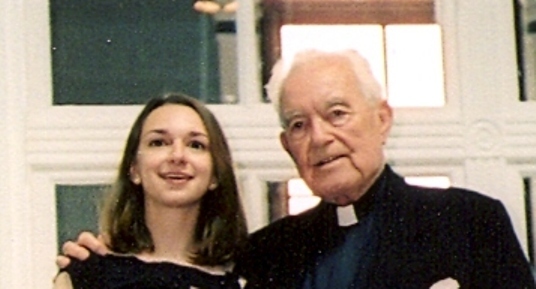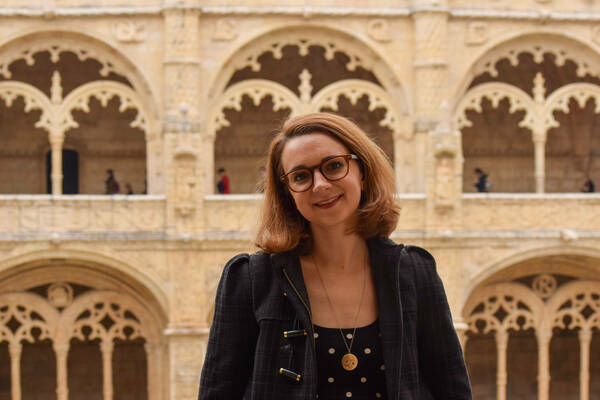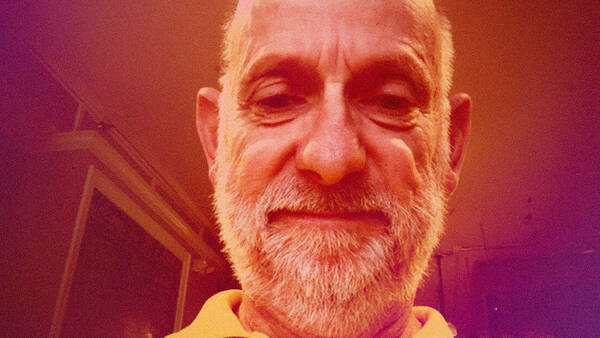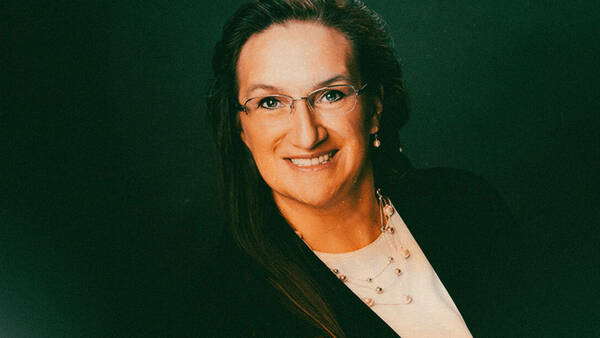The business world doesn’t appeal much to Claire Sloss ‘09.
For over a decade, Sloss — Associate Director of Communications and Marketing at the Chicago Coalition for the Homeless (CCH) — has found meaning in work that aligns with her values. Her service to people experiencing homelessness dates back to her time as a student at Notre Dame, and she has since pursued a career based more in helping others than making money.
“I can’t see myself working for a for-profit,” she said when asked about her future career goals. “It’s really important to me to believe in the mission of the organization that I work for, so I think I will always work for an organization that is trying to do good in the community.”
Sloss’ commitment to service is certainly evident in her over nine years of full-time non-profit work at CCH in various development, marketing, and communications roles. Earlier in her career, it was seen in her part-time work at the organization while a graduate student at the University of Chicago; in her time at Mercy Housing Lakefront through the Amate House postgraduate service program; and in her extensive involvement in the Center for Social Concerns (CSC) while an undergraduate student at Notre Dame.
“The best part of my Notre Dame experience was probably the education I got through the Center for Social Concerns,” she said. “I feel like it really impacted my future career and the way I saw the world and my role in it. Being at Notre Dame, I learned more about my privilege than anywhere else I had been before.”

A sociology major with minors in peace studies and the Hesburgh Program in Public Service, Sloss volunteered at the South Bend Center for the Homeless where she completed her senior capstone research project on doubled-up homelessness, an issue she has remained deeply passionate about combating throughout her career.
As she explained, doubled-up homelessness, more commonly known as “couch-surfing,” describes a situation in which an individual who does not have a lease or home of their own is living with friends or family in often unstable and overcrowded conditions.
“It’s not what people typically think of as homeless,” she said.
While still an undergraduate student, Sloss’ heart for service took her to Appalachia twice, Kansas City, Florida, and Chicago through programs run by the CSC. One winter break, on a service-learning seminar trip to Chicago, she encountered CCH for the first time.
“There was a … seminar over Christmas one year that was around community organizing; we went to visit a bunch of community organizations in Chicago,” she recalled. “That piqued my interest in being in Chicago and doing organizing and policy work. The experiences I had definitely built my interest in social justice and framing my career around being involved in social justice work.”
Sloss’ experiences with the CSC, along with the work of her older sister, Jane Sloss ’02 — a fellow Notre Dame graduate who spent her first year post-graduation serving at a homeless shelter in Phoenix, Arizona, through Holy Cross Associates — inspired her to embark on a postgraduate year of service through Amate House, a social justice-based service and leadership program that works closely with the Archdiocese of Chicago. There, she lived in an old convent with 13 other recent college graduates, each serving at a local nonprofit.
She spent that year working and serving at Mercy Housing Lakefront, the midwestern branch of Mercy Housing, a nationwide organization that provides permanent supportive housing and studio-like, single-room occupancy apartments to those who have experienced homelessness. At the time, Mercy Housing Lakefront managed 14 apartment complexes around Chicago.
“My role at the organization was to work in three of those buildings to get the tenants civically engaged and involved in their community,” Sloss recalled. “I was called a tenant organizer — basically a community organizer but just working with the residents.”
In this role, she helped tenants develop a neighborhood group to address public safety issues along with assisting them in becoming more involved in local affordable housing campaigns through CCH and other community organizations. In working directly with those who had experienced homelessness firsthand, Sloss said her focus was shifted from looking at it as an issue that could be solved on an individual basis to one that required systemic change.
“It really made me more interested in solutions around homelessness and preventing people from becoming homeless in the first place rather than having to provide solutions after they’ve already become homeless,” she said.
Although she had already planned to attend graduate school, the idea further inspired her to enroll in the University of Chicago’s public policy program following her year with Amate House. While a graduate student, she began part-time work with the CCH in a development and fundraising role through a work-study program. After obtaining her degree in 2012, she accepted a full-time position as a development associate.
Her role at the organization has changed four times in the nine years since. Most recently, she formally transitioned to CCH’s new communications department upon its creation in April 2021. However, she has been involved in communications at the organization in some capacity since she began working there.

As current Associate Director of Communications and Marketing, Sloss is no longer directly involved in development at CCH. However, she insists the work she does in her new role is no less important in combating homelessness in Chicago.
“[My work] involves communicating our message to outside audiences and helping the community to understand what homelessness is,” she explained.
She added that although many homeless Chicagoans experience doubled-up homelessness, few people know what that means. A crucial part of her personal mission is to change that.
“It looks very different from homelessness in L.A. or the Bay Area,” she said. “Communicating that message is important because funding is sometimes restricted only to people who are living in shelters or on the street, and so it’s much harder for people to exit doubled-up homelessness than … more conventional forms of homelessness.”
Sloss strives to raise awareness of this issue through the graphic design work, blog posts, and social media content she creates for CCH. She appreciates the freedom that working for a small organization has granted her to develop new skills — she is self-taught in graphic design and the Adobe Creative Suite — and take the lead on projects that complement her talents and interests. Currently, she is spearheading CCH’s rebranding effort.
She takes pride in the many projects and initiatives she has worked on in her extensive career with CCH, but is particularly proud of the mobile app she helped create alongside other CCH staff and another nonprofit organization, Young Invincibles. The app, which is called StreetLight Chicago, serves to connect homeless youth with service providers, shelters, food, and mental health care.
“I was the one who named the app, created the logo, and created the design elements. It’s definitely satisfying to feel like this tool can be really impactful for someone who’s experiencing homelessness,” she said.
Sloss recognizes that nine years is a long time to have worked at the same organization in today’s professional climate, joking that her resume lacks diversity. It is CCH’s mission and belief that housing is a human right, however, that not only keeps her coming back each year but fills her with a pride and loyalty that rivals that of a Notre Dame sports fan.
“I have a lot of [CCH] apparel that I wear, it’s sort of like school pride … like wearing a Notre Dame sweatshirt,” she said. “I wear a lot of Chicago Coalition for the Homeless clothing just because I’m so proud to work there and of the work that we do.”
In recognition of her dedication and service to CCH, Sloss received the Amate House Founder’s Award — designed to honor an Amate House alumnus who has continued to exemplify the organization's five tenets of service, community, faith, social justice, and stewardship in their personal and professional life — in April 2020.
“It’s an honor to feel like my career path and my personal choices have continued to reflect a dedication to making positive change in the community around me,” she said. “In the simplest terms, it’s about being a good person."



